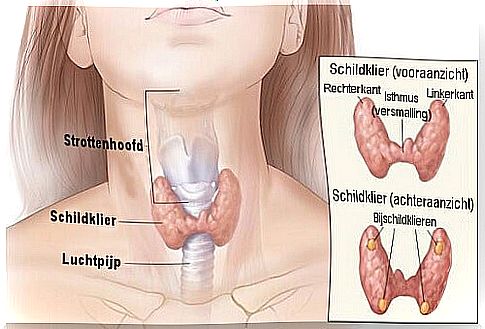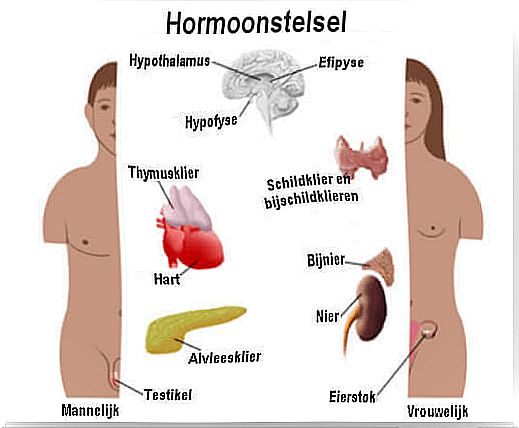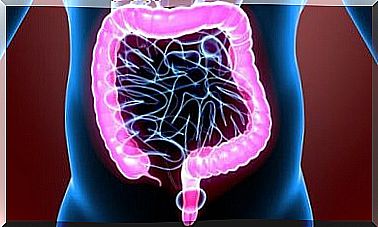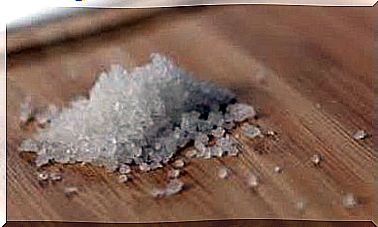Symptoms And Causes Of Hormonal Problems
Hormonal problems can mess up your entire system. So pay close attention to the symptoms, because the smallest change can have a big impact on your body.

Hormones are essential elements in your body. They regulate your development, your menstrual cycle and salt and sugar levels in your blood, and give you energy. Hormonal problems can therefore cause certain symptoms, which you should be able to recognize in the future.
Want to know what these common symptoms are?
The causes of certain hormonal problems are different. They can sometimes even be caused by a combination of different factors, from genetics to problems in your diet, so it’s interesting to know all the information for your health.
What are hormonal problems?

- Hormones are chemical elements made by the endocrine glands in your body. They have a regulatory role in your body, which also affects various parts of your physical appearance, weight, and emotional and organic makeup.
- Hormones travel through your bloodstream, activating and coordinating various organs. They also accelerate change. They also regulate metabolism, heart rhythm, menstrual cycles, and milk production when you are a nursing mother.
- Hormonal problems occur when there is an excess (hyperfunction) or deficiency (hypofunction) of hormones, causing various problems.
Symptoms of Hormonal Problems
- Skin issues: acne, rash, changes in color and shape, hardening or wrinkles
- Weight loss or gain
- mood swings
- Sudden and rapid hair loss
- Eye problems
- mood swings
- Sudden depression or sadness
- Abundant or long periods
- Abdominal pain or inflammation
- Very painful menstrual cramps
- Irregular periods or no periods at all
- Menstrual blood clots
- Pain in the lower abdomen or ovaries
- Dark spots after your period
Types of Hormonal Problems

- Hyperthyroidism: This is a hormonal, metabolic problem in which your thyroid gland produces too many hormones in your body, causing some pretty serious conditions. For example, it often happens that you lose weight because of this.
- Hypothyroidism: In this case, the exact opposite happens. You have a low production of thyroid hormones, which makes you gain weight. Sometimes a so-called goiter also develops, a noticeable swelling in the neck.
- Estrogen Imbalance: Women sometimes suffer from poorly balanced or increased estrogen levels. The symptoms often correspond to those previously mentioned. It can also be the cause of fibroids and cysts in the breasts. So you have to keep an eye on this.
- Abundant cortisol: This is the stress hormone. Your daily obligations, anxiety and tension cause extra cortisol in your body, which then causes serious hormonal problems. You need to be careful and treat it as soon as possible using techniques for dealing with tension, relaxation and behavior modification.
Causes of Hormonal Problems

- There is often a genetic predisposition to suffering these kinds of changes in your hormones. Thyroid problems are often hereditary.
- Stress and emotional issues are also something to keep an eye on. Your lifestyle directly affects your health and the endocrine system is the first in your body to notice. When you have a high stress level, cortisol and other substances are released in your body. This causes, for example, menstrual problems, an increase or decrease in weight, sleeping problems and hair loss.
- Experts say insulin resistance is one of the main causes of hormonal problems. The way you eat is essential to prevent a metabolic disorder. Foods with too many conservatives, salt or saturated fat, energy or caffeinated drinks, processed sugar, alcohol or allergenic foods such as milk, sugar and eggs are all best avoided.
Advice to relieve hormonal problems
- Healthy foods with antioxidants, such as orange, lemon, or cranberry juice
- Increase intake of vitamins A, B, folic acid and vitamin D
- Increase your dose of calcium, magnesium, chromium, selenium, zinc, iodine and omega 3
- Eat linseed oil
- Try to maintain a healthy lifestyle with sports and stress management. Avoid long hours in front of the computer or television, as the waves also affect your cycles and the endocrine system. Catch some sun and enjoy the outdoors!









